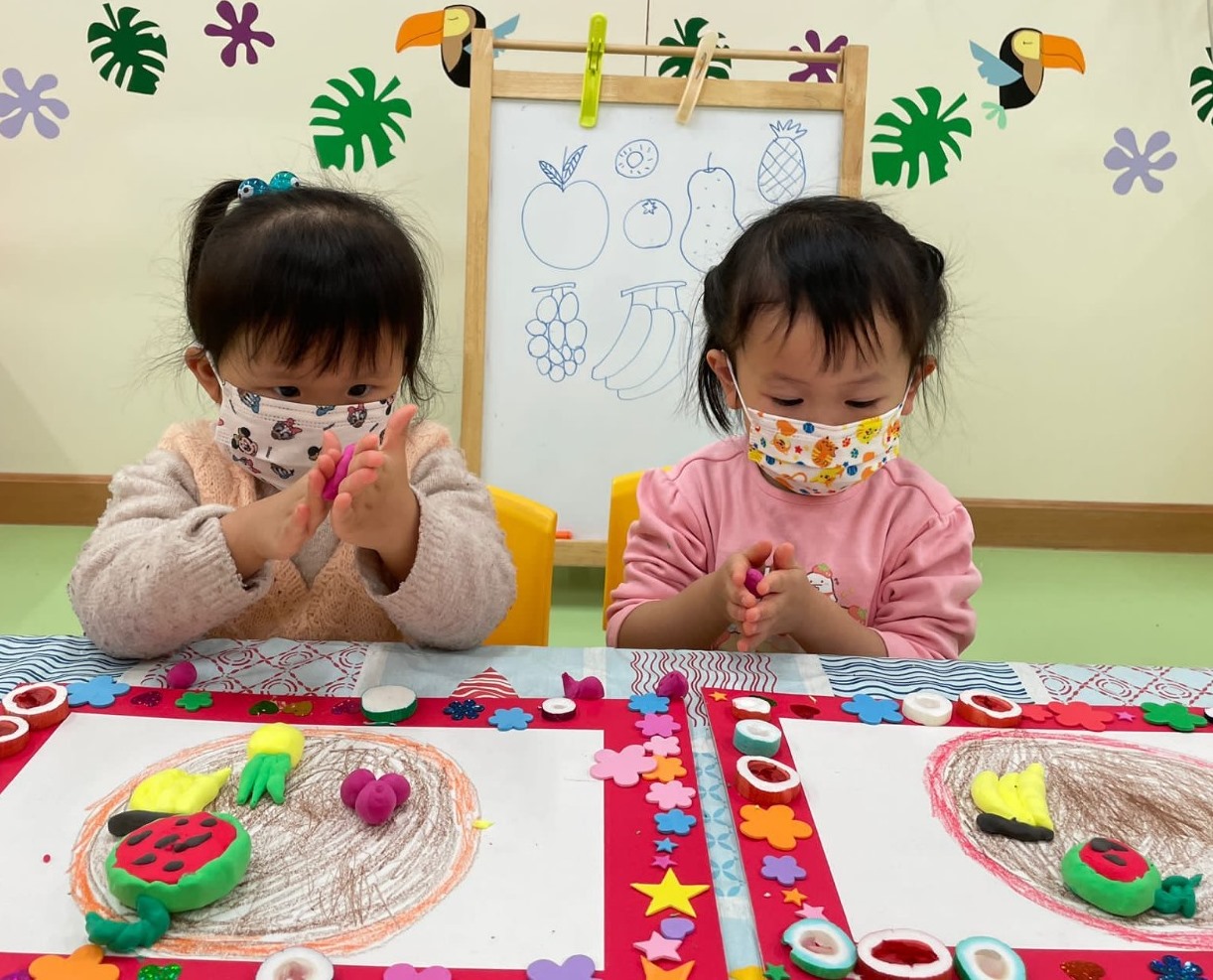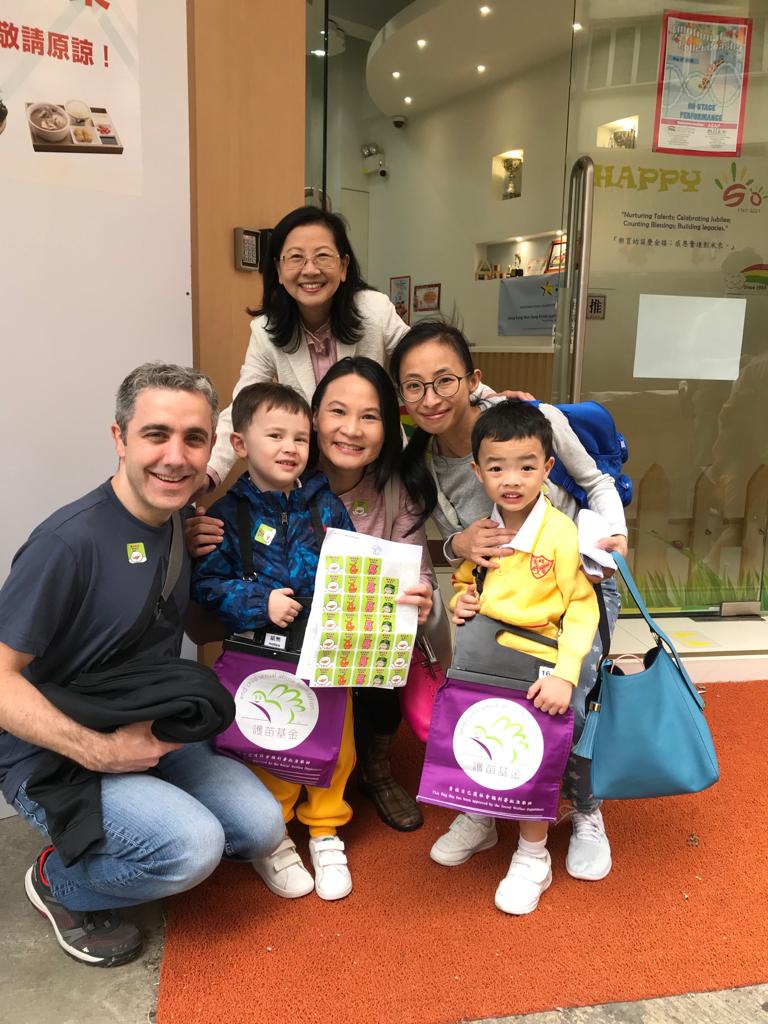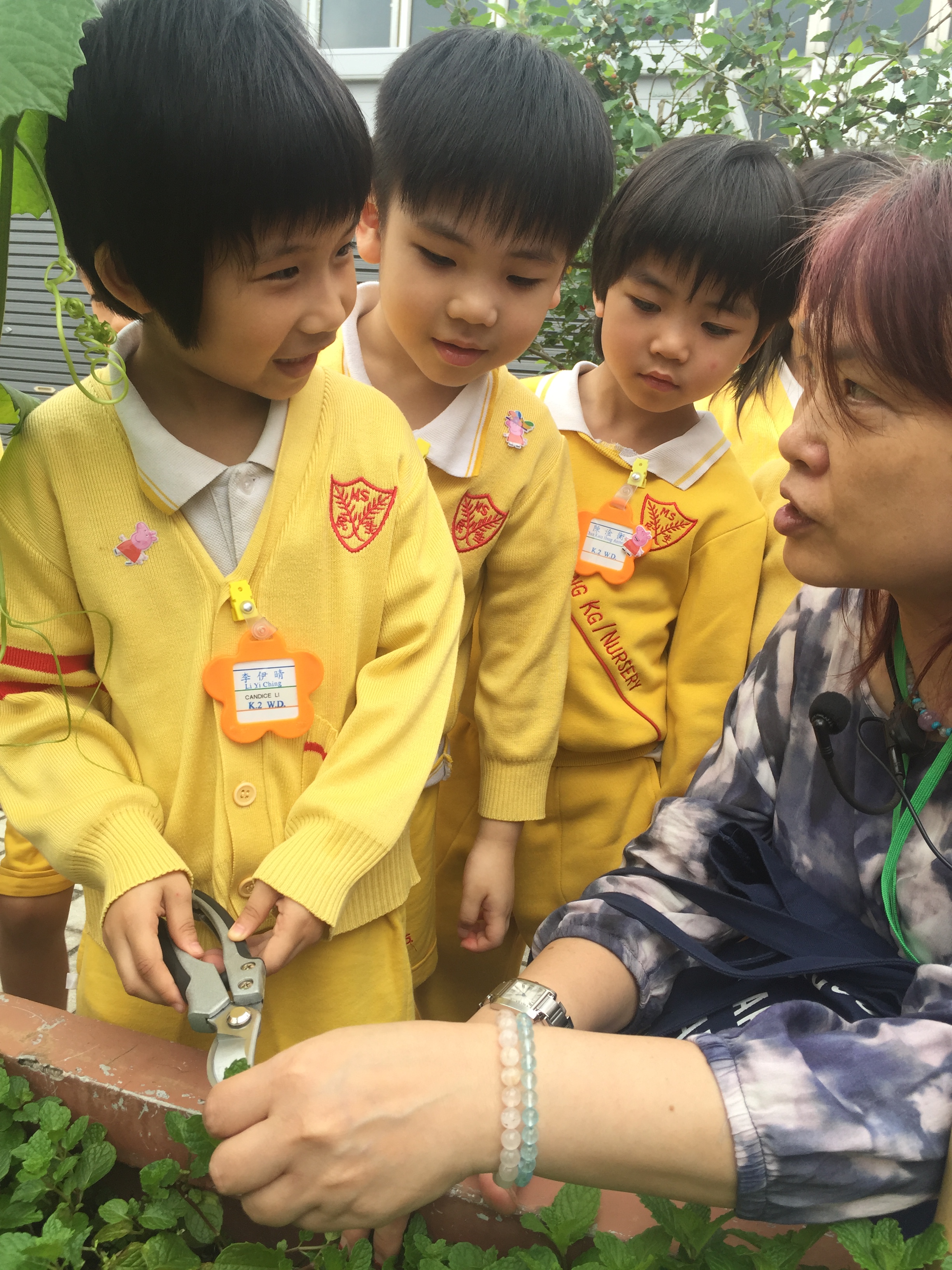The school adopts a trilingual learning approach,
with English and Cantonese teachers conducting
classes, supplemented by Putonghua learning
activities. The bilingual English-Putonghua class
is taught by English and Putonghua teachers,
supplemented by Cantonese learning activities.
A language-rich learning environment is created
to enhance children's foreign language reading
and communication skills, prepare them for primary
school, and become good global citizens.

School-based Curriculum
- Chinese Curriculum
cultivate a positive attitude towards learning.
The curriculum utilizes a combination of thematic
teaching and project approach, with reference to
the content of the "Kindergarten Education Curriculum
Guide”. The curriculum is developed in collaboration
with the Curriculum Development Team of the school
and experienced scholars, placing child-centeredness
and learning needs as core values. It combines children's
life experiences and abilities to provide diverse learning
activities, aiming to cultivate a positive attitude towards
learning.
The
Jolly Phonics program is adopted, using learning
methods such as stories,
actions, letter sounds, structures,
combinations, and recognition to enhance children's
English phonics, reading, writing, and comprehension abilities.
Textbooks such
as the Oxford English Story Series, Fun Around
Us, and Jolly Phonics Workbooks
are used. Learning activities
include thematic stories, show and tell, games,
and reading aloud,
encouraging children to use English in daily conversations
and
develop an interest in writing. The Cambridge English curriculum
provides a
comprehensive foundation in English for the Kindergarten
to Primary classes, focusing
on children's English reading, writing,
listening, and speaking skills. Various
exercises are provided to
cater to different learning needs and prepare
children for good
performance in the Cambridge English Learning Foundation
Examinations.
Teaching
materials and phonics materials prepared by professional
Putonghua instructors
are used. Through activities such as games,
nursery rhymes, and recitation,
children's listening, speaking, reading,
and writing abilities in Putonghua are
expanded. The pre-nursery
class primarily focuses on learning theme-related
songs and
pronunciations through singing, storytelling, and games.
From K1 to
K3, Putonghua phonics classes are introduced to
help children learn and master
the phonetics of initial sounds
and ending sounds.

The school actively promotes care for the campus,
mutual respect, and appreciation to cultivate children's
correct values and establish positive behavior.
PN to K2 classes use concise and direct school-based
English story learning kits and games to cultivate
positive behavior in children, thereby fostering good
character and a healthy mindset.
"Zippy's Friends" Curriculum
.png)
For the K3 class, the school implements an emotional
health curriculum provided by the Partnership for
Children Org. in the UK and the Education University.
The curriculum consists of six units: emotions, communication,
building and breaking relationships, resolving conflicts,
dealing with change and loss, and facing new environments.
Through analyzing story scenarios, children learn to solve
problems positively and control negative emotions, thereby
promoting their physical and mental well-being.

In Pre-Nursery, children's daily life performances, such as self-care and fine motor skills, will be closely observed. From Nursery to Kindergarten levels, we progressively observe children's learning performances and cognitive abilities. Assessment is conducted through continuous observations, interviews, and documentation of children's performances. We also organize and analyze data provided by parents to assess children's physical and mental development. We report the assessment results to parents and establish a "Learning Portfolio" for each child to document their growth during the preschool stage.
Encourage children to participate in at least one physical
fitness class or uniform team training, allowing them to develop their physical
fitness through activities, unlock their potential, build self-confidence, and
learn to cooperate with others in a group. Through continuous learning and
training, they will learn to solve difficulties and develop a sense of
responsibility.
-
Taekwondo
.jpg)
Learning the basic techniques and simple
self-defence skills of Taekwondo, the curriculum
focuses on improving physical fitness and
cultivating the spirit of morality, intelligence,
physicality, and aesthetics.
- Uniform Team - Cub Scouts

Emphasis is placed on learning through practice,
cultivating team members' self-confidence, discipline,
and teamwork spirit through gatherings and trainings.
It also allows team members to acquire knowledge and
life skills beyond textbooks. After transitioning to
primary school, they can further participate in the
training programs offered by the Hong Kong Scout
Association for Cub Scouts.
- Happy Bee

The activities of Happy Bee focus on cultivating
children's awareness of society, promoting good
habits, and developing their self-care abilities through
learning social and health knowledge. Through active
participation, children enhance their lively, brave,
disciplined, and other positive qualities. Girls can join
the Girls Cub Scouts of the Hong Kong Girl Guides
Association during their primary school years,
becoming members of this organization.
- Arts activities

Through music and arts activities, children can express
their thoughts and emotions during the process and
enjoy the pleasure of appreciating their peers'
performances or artworks.

Through On-Stage performances, children develop confidence, independence and perseverance. They also enable young children to use them body movements to communicate and to find enjoyment in performances.

Collaboration between teachers and parents is encouraged to cultivate the interest and habit of reading in young children from an early age, enhancing their motivation for self-learning. Teachers encourage parents to read continuously with their children, develop the habit of borrowing books from the library, and record their thoughts after reading through pictures or writing. This helps improve children's writing skills and enhances the bond between parents and children during the reading process.

Active participation in community activities, public competitions, and performances, such as fundraising flag sales, visiting the elderly, charity book sales, and scarf-giving campaigns, allows children to understand that the community consists of people from different backgrounds and with different needs. Through these activities, children learn to accept others and gain a greater awareness of society.
Encouraging children to learn beyond the classroom, for example, by visiting science museums, libraries, zoos, and botanical gardens, allows them to engage with the community, broaden their learning domains and perspectives, gain new experiences, and foster interaction and communication among peers.



.png)
.png)
